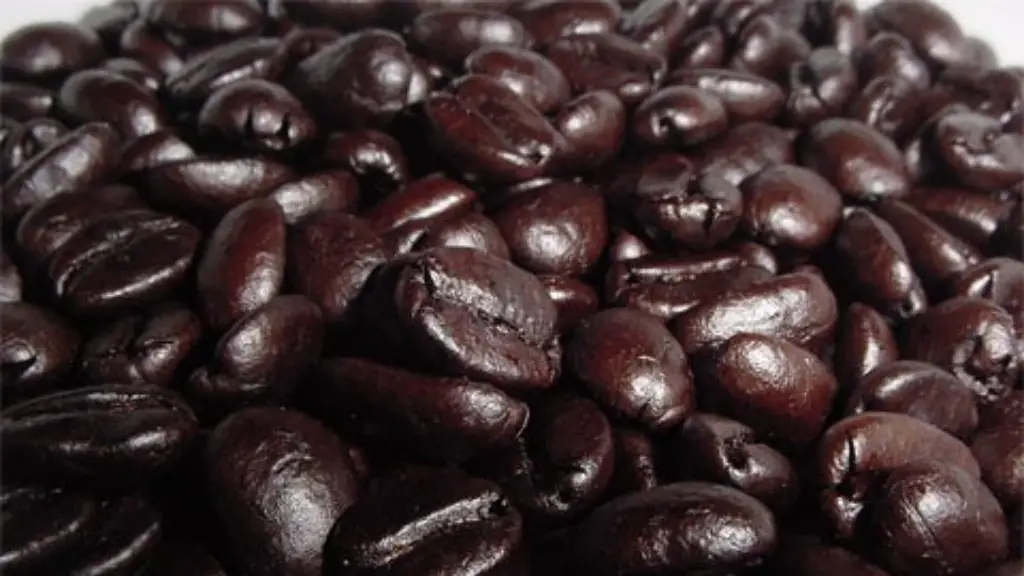Coffee is a beverage enjoyed by millions of people each morning. But is drinking it once a day really good for your health? The answer is complicated, as there is no simple answer. Studies show that it depends on each individual’s unique health circumstances and how they consume the beverage. It’s important to consider the benefits and drawbacks of drinking coffee daily.
Benefits of drinking coffee once a day include increased alertness, enhanced focus, and improved mood. Coffee stimulates the nervous system and helps boost your energy level, allowing you to be more productive throughout the day. Coffee is also a great source of antioxidants, which can help reduce the risk of certain diseases. Additionally, drinking it may help prevent cognitive decline as one ages and improve one’s memory.
There are also drawbacks to drinking coffee once a day. Caffeine is a stimulant and can cause anxiety, restlessness, and an increased heart rate and blood pressure. Too much of it can lead to headaches, jitters, and an irregular sleeping pattern. Additionally, if one consumes the coffee too quickly, the acidic acidity can damage the enamel of one’s teeth. Lastly, if one drinks coffee with added cream and sugar, this can add calories and fat which can have an adverse effect on one’s health.
It’s important to note that drinking coffee is not a bad habit and can actually be beneficial if consumed in moderation. As such, it’s recommended that one limit themselves to one cup per day or, if possible, even less. Additionally, one should be mindful of the type of coffee they’re drinking and how they’re preparing it – opt for low calorie, low fat options which can minimize any potential adverse health effects.
The bottom line is that the effects of drinking coffee once a day depend on individual health circumstances and the type of coffee one is consuming. On the whole, moderate coffee consumption may have some health benefits. As such, if one is going to drink coffee once a day, it’s best to do so wisdom and avoid any additives.
Varieties of Coffee
There are many types of coffee beans and methods of making it, so it’s important to educate yourself on each variety if you’re looking to reap the most health benefits. For instance, some types of coffee beans are higher in antioxidants than others. Arabica beans are generally considered to be the best quality beans and are packed with antioxidants, while robusta beans are typically lower in antioxidants. Similarly, certain methods of preparing coffee such as cold brewing can help bring out the flavour while also maintaining more of the beneficial nutrients.
In addition to the type of beans, the type of brew can also affect the health benefits. For instance, espresso is made using highly pressurized water and is made in just a few seconds, so it’s often lower in caffeine than other coffees. Additionally, espresso generally contains a higher amount of antioxidants and other beneficial compounds. On the other hand, drip coffee is made with hot water and requires a longer brewing time and as a result typically also has more caffeine than espresso.
When it comes to finding the healthiest coffee, there is no clear-cut answer. It’s best to experiment with different brewing methods and beans to find the coffee that is both enjoyable and healthiest for you.
Caffeine Effects and Alternatives
Caffeine is a stimulant, so it’s important to understand how it affects your body and to take steps to minimize any potential negative effects. Too much caffeine, such as more than four cups of coffee a day, can lead to insomnia, restlessness, jitters, and anxiety. Additionally, it can interfere with important minerals that are needed for normal functioning of the body. As such, it’s important to be mindful of how much caffeine you’re consuming.
Furthermore, if coffee isn’t for you, there are still plenty of alternatives to get that energy boost. Tea, for example, contains caffeine but it’s typically less than coffee and can have a more calming effect. Green tea, in particular, is a great option, as it is rich in polyphenols and antioxidants and can help boost the metabolism and improve heart health. Additionally, kombucha is a type of fermented beverage that is becoming increasingly popular. It contains beneficial bacteria which can help improve digestion and can also provide an energy boost.
Health Benefits of Drinking Coffee
In spite of the potential drawbacks, there are several potential health benefits associated with drinking coffee. For example, studies have found that drinking moderate amounts of coffee may reduce the risk of developing type 2 diabetes, as it may lower blood sugar levels. Additionally, it has been linked to a reduced risk of certain cancers, including liver and breast cancer. Coffee is also a good source of antioxidants which can help protect against free radical damage and protect against certain diseases.
Furthermore, research has suggested that regular coffee drinkers may have a lower risk of developing Alzheimer’s and Parkinson’s disease. Also, drinking coffee can help prevent gallstones in some individuals and can help reduce inflammation, which can lower the risk of chronic diseases such as heart disease and stroke. Lastly, coffee can help boost the metabolism and help with weight loss.
Conclusion
To sum it up, drinking coffee once a day may have potential health benefits and drawbacks, depending on each individual’s circumstances and how the beverage is consumed. It’s important to note the type of coffee you’re drinking and the brewing method, in order to ensure you’re reaping the most health benefits. Additionally, it’s crucial to stay mindful of the potential risks, such as caffeine overload and damage to your teeth and opt for alternate beverages such as tea or kombucha, if needed. Ultimately, if consumed in moderation, drinking coffee can be beneficial for your health.



